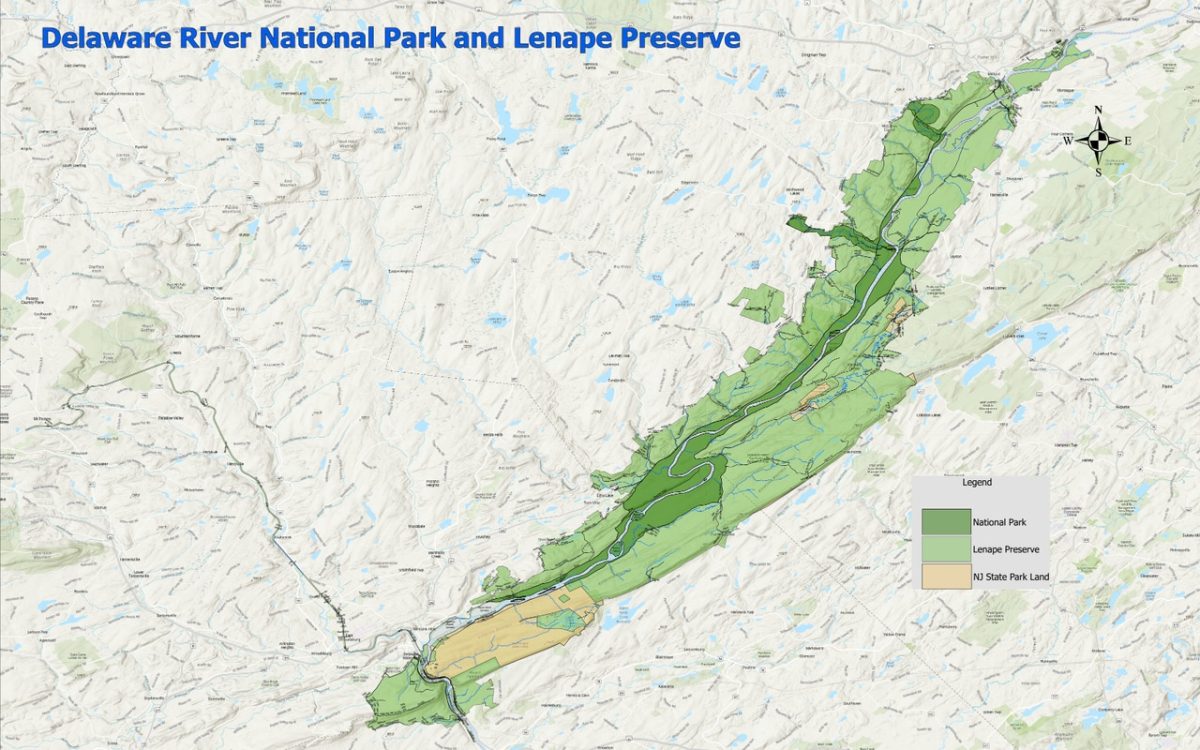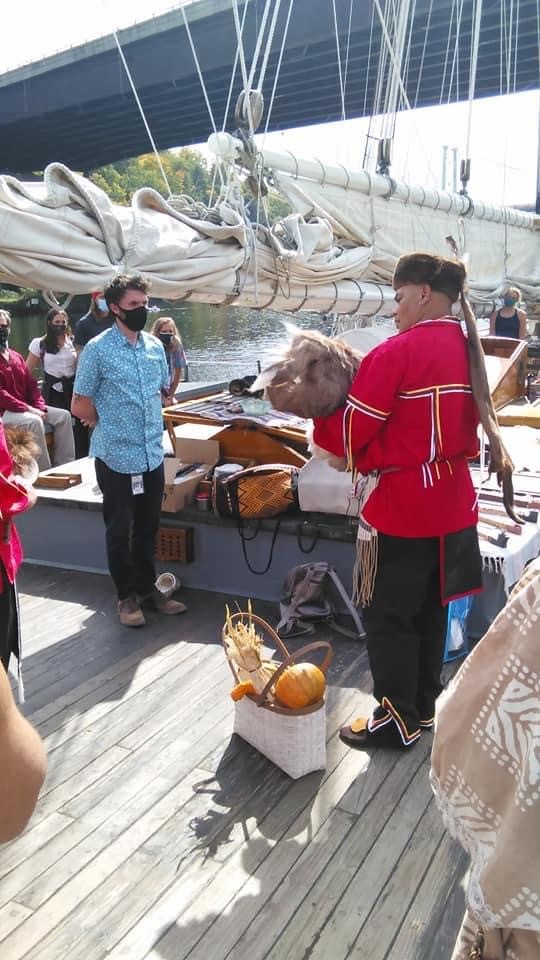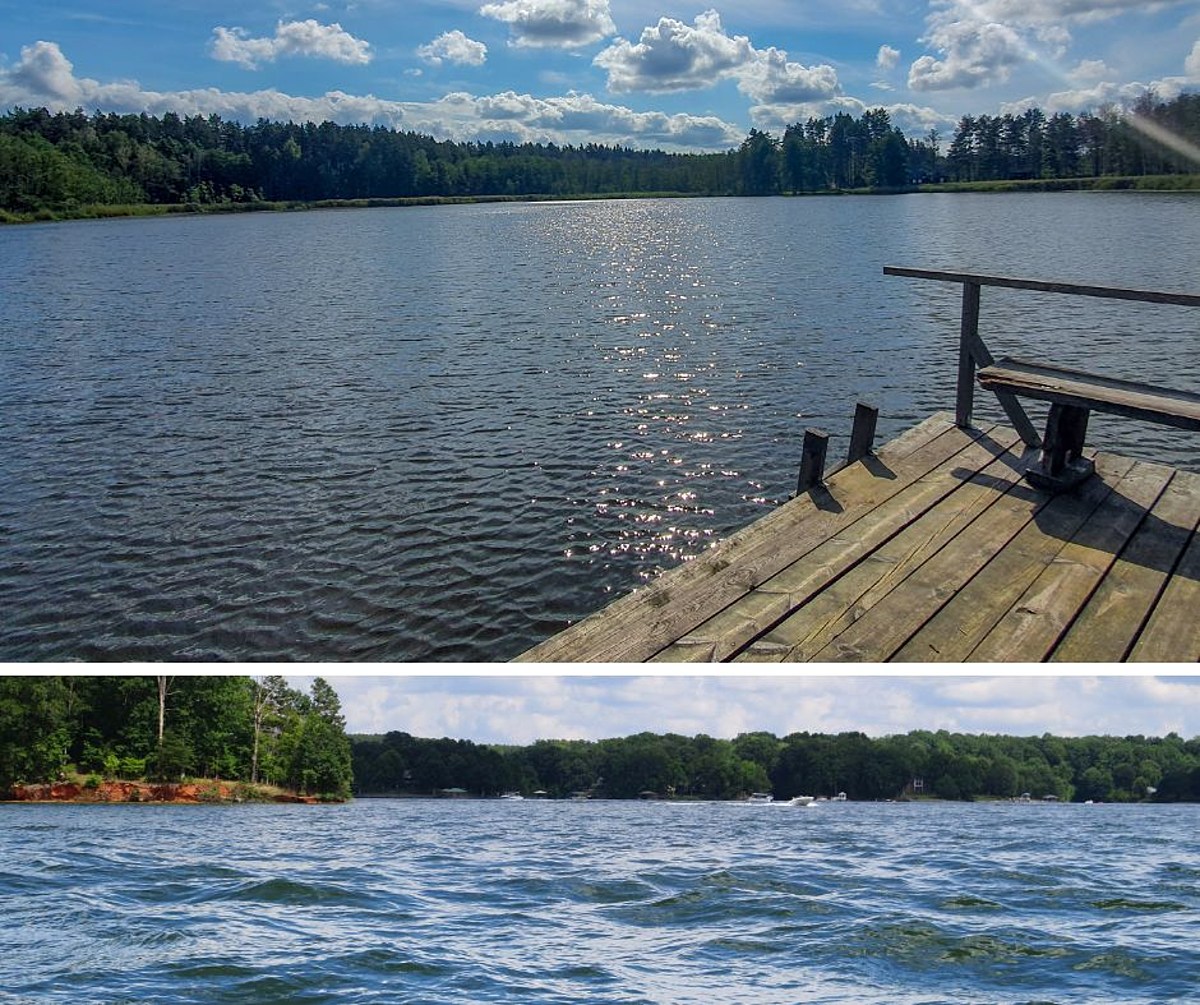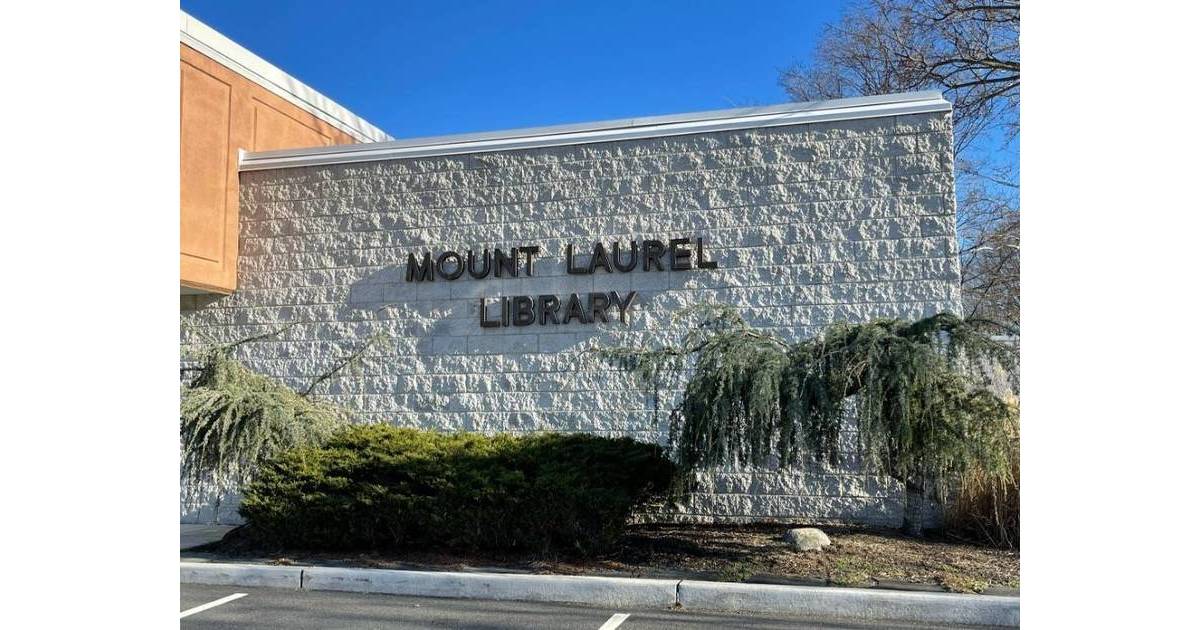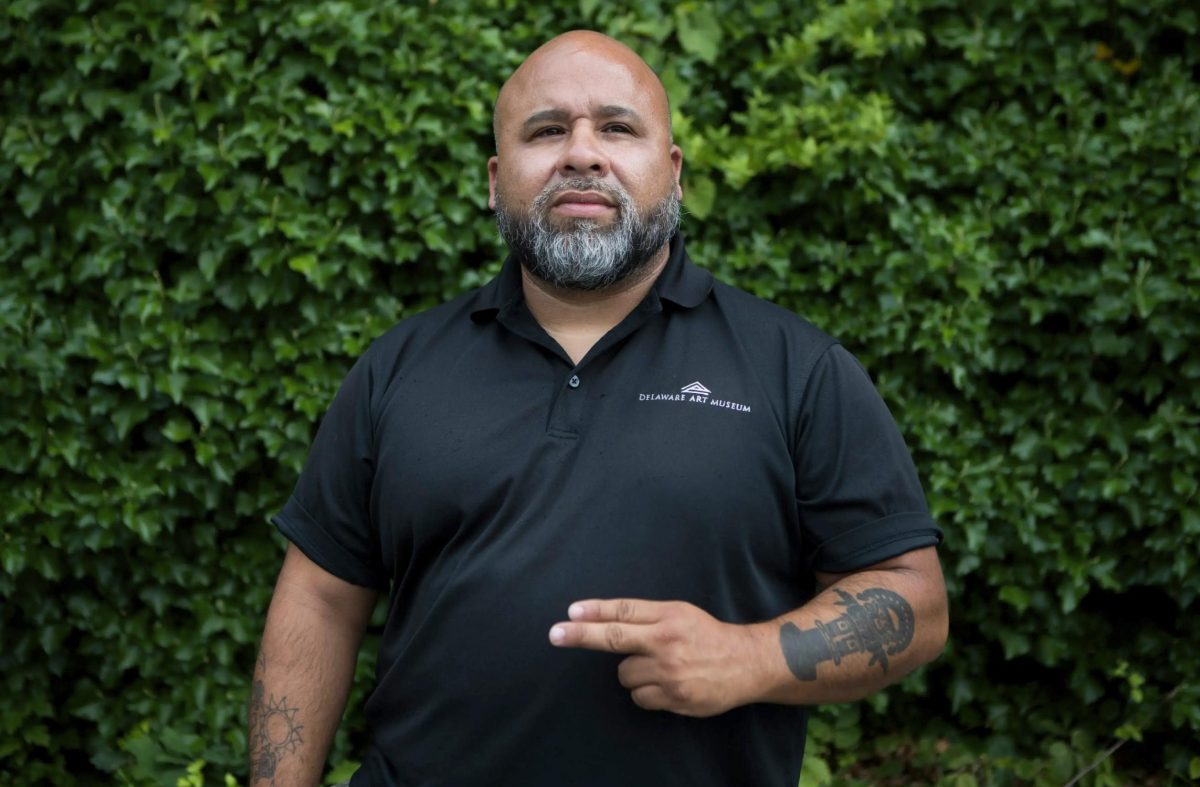On Wednesday, a collection of colorful canoes appeared on the horizon of the Lenape Sipu (Delaware River) at Scott Park in Easton, growing larger and clearer by the moment. As the canoers paddled swiftly to shore, their singing and splashing filled the air. The paddlers are members of the Lenape Nation of Pennsylvania, and have rowed over 100 miles since the start of their journey.
The paddlers are participants in the sixth Rising Nation River Journey, a quadrennial odyssey in which Lenape rowers carry a Treaty of Renewed Friendship down the Lenape Sipu and hold treaty signings at locations along the way. This year’s journey marks the event’s 20th anniversary.
The paddlers began July 30 in Hancock, New York, and will conclude Aug. 20 in Cape May, New Jersey. There are 13 treaty signing destinations on their path, including the Sigal Museum in Easton.
The Lenape are the original inhabitants of Eastern Pennsylvania. By signing the Treaty of Renewed Friendship, organizations and individuals acknowledge the Lenape’s origins in the region and commit to supporting them in their stewardship of the land. The River Journey tradition aims to raise awareness for the presence and heritage of the Lenape people, encourage respect for their homeland, celebrate and pass on their culture. They are also fundraising for their cultural center in Easton.
“We do this every four years in order to get people to support us in taking care of the river and trying to keep it clean,” said Ken Macaulay, former cultural chief of the Lenape Cultural Center.
The Lenape also journey to interact with their land. The section of the Lenape Sipu below the Delaware Water Gap through the Easton area is one of the “most sacred, powerful” parts of the river, head coordinator Adam Waterbear DePaul said.
The River Journey also holds significance for…



